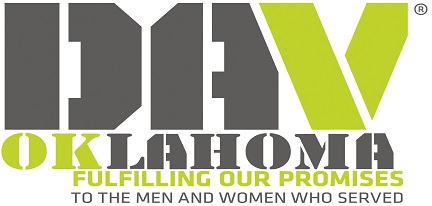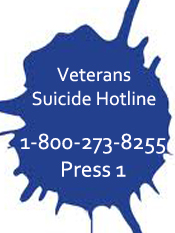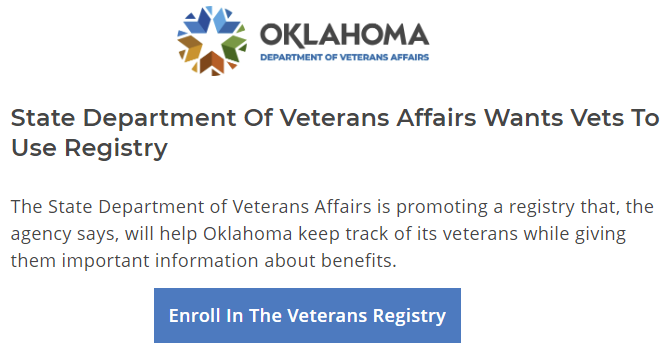Military personnel can retain their residences or domiciles for purposes of state and local taxation and voter registration when they leave a state if that move, and any subsequent moves, are made in compliance with military orders. Under the Military Spouses Residency Relief Act, spouses of service members can retain their states of residency if they move and reside with the service member; they cannot use the service members’ states of residency for taxation or voting purposes unless they can independently establish
entitlement according to state laws. H.R. 5428 would allow spouses of service members to claim the same state of residence as the service member for those purposes, regardless of whether the spouse had ever resided in that state
• H.R. 5428, Military Residency Choice Act.
• PTSD Update ► H.R. 5600: No Hero Left Untreated Act:
The Congressional Budget Office (CBO) has submitted their report on H.R. 5600: No Hero Left Untreated Act. The bill would require the Department of Veterans Affairs (VA) to establish a one-year pilot program to treat a limited number of veterans with post-traumatic stress disorder, traumatic brain injury, military sexual trauma, chronic pain,or opiate addiction by using Magnetic eResonance Therapy technology (MeRT technology). The bill also would require VA to report to the Congress on the results of that pilot program. MeRT technology is a customized neurological treatment that uses magnetic pulses to stimulate brain tissue. The Brain Treatment Center (BTC) in
Southern California developed the MeRT technology and has proprietary rights to the treatment. Over the 2012- 2015 period, the center has treated more than 400 veterans at four locations in the state of California and the state of Washington. Under this proposal, VA would be required to carry out the one-year pilot program with no more than 50 veterans in one or two medical facilities. Because the technologuy is proprietary, we expect that VA would contract with BTC to provide MeRT technology to those veterans. On the basis of information from BTC, CBO expects the average patient at VA would undergo an initial assessment at a cost of $1,000 and at least 20 MeRT sessions over a 30-day period at a cost of $22,000. On that basis, CBO estimates that implementing this bill would cost $1 million over the 2017-2021 period; that spending would be subject to the availability of appropriated funds. Enacting the legislation would not affect direct spending or revenues; therefore, pay-as-you-go procedures do not
apply. CBO estimates that enacting H.R. 5600 would not increase net direct spending or on-budget deficits in any of the four consecutive 10-year periods beginning in 2027. H.R. 5600 contains no intergovernmental or private-sector mandates as defined in the nfunded Mandates Reform Act and would not affect the budgets of state, local, or tribal governments
• Gulf War Syndrome
The VA is seeking to expand the time limit that veterans can claim disability benefits for Gulf War Syndrome by five years. In a document published in the Federal Register on 17 October, the VA seeks to expand the time limit that veterans of the Gulf War may claim disability benefits for the chronic multi symptom illness known as Gulf War Syndrome from December 31, 2016 until December 31, 2021. Gulf War Syndrome is defined by the VA as a cluster of medically unexplained chronic symptoms that can include fatigue, headaches, joint pain, indigestion, insomnia, dizziness, respiratory disorders, and memory problems
House bill 2599 becomes law on November 1, 2016
An act relating to criminal procedure; granting courts authority to consider posttraumatic stress disorder as a mitigating factor when sentencing veterans; directing defendants to provide certain evidence; defining term; providing for codeification; and providing an effective date of November 1,
Vets, retirees will see a 0.3% COLA hike in 2017 while Congress receives 1.6%:
While I feel certain that most veterans receiving disability and/or retirement income are aware of the fact that they will receive an increase in 2017 Military retirees and individuals receiving veterans benefits will see only a 0.3 percent cost-of-living increase in their federal benefits next year and some are wondering how much their increase will be. If you receive $1,200 per month in federal benefits, your increase will be $3.60 per month. So while you will receive $3.60 under the above scenario, the individuals you elected will receive $19.20 using the above monthly compensation of $1,200.
TRICARE
Express Scripts, Inc. (ESI) announced upcoming changes to the retail pharmacy network it manages on behalf of TRICARE. On December 1, 2016, Walgreens pharmacy locations will join the network. CVS pharmacies, including those in Target stores, will leave the network on the same day. If beneficiaries chose to fill a prescription at CVS after December 1, it will be a non-network pharmacy. This means they will have to pay the full cost of the medication upfront, and file for partial reimbursement
Veteran related bills recently introduced in the House of Representatives:
H.R.6272 — VA Provider Pay Modernization Act of 2016. A bill to amend title 38, United States Code, to authorize the Secretary of Veterans Affairs to increase the maximum market pay of physicians and dentists in the Veterans Health Administration who work in health professional shortage areas, and for other purpose.
H.R.6003 — Protecting Our Veterans From School Closures Act. A bill to amend title 38, United States Code, to provide veterans affected by school closures certain relief and restoration of educational benefits, and for other purposes.
H.R.6089 — Financial Independence for Disabled Veterans Act of 2016. A bill to authorize members and former members of the uniformed services who are entitled to veterans disability compensation to continue to participate in the Thrift Savings Plan through the deduction and deposit of a percentage of their veterans disability compensation to the Thrift Savings Fund
Veteran Related Bills Recently Introduced in the Senate:
S.3447 — Vietnam Helicopter Crew Memorial Act. A bill to direct the Secretary of the Army to place in Arlington National Cemetery a memorial honoring the helicopter pilots and crew members of the Vietnam era, and for other purposes.
S.3434 — Violence Against Women Veterans Act. A bill to require the Secretary of Veterans Affairs to improve the provision of services and benefits from the Department of Veterans Affairs for veterans who experience domestic violence or sexual assault and for other purposes,
S.3403 — Serving our Rural Veterans Act of 2016. A bill to authorize payment by the Department of Veterans Affairs for the costs associated with service by medical residents and interns at facilities operated by Indian tribes, tribal organizations, and the Indian Health Service, to require the Secretary of Veterans Affairs to carry out a pilot program to expand medical residencies and internships at such facilities, and for other purposes.
McCain agrees to drop veterans hiring preference changes from NDAA:
Senate Armed Services Committee Chairman John McCain told veterans groups this week that he’ll oppose controversial plans to limit federal hiring preferences for individuals with military experience, an advantage advocates argue is critical in helping them find employment.
Earlier this year, Senate lawmakers approved a draft of the annual defense authorization bill which included limiting veteran’s preference in federal hiring procedures to a one-time use. Veterans who applied for a second federal job or a transfer from their first position would be evaluated by hiring officials as just another civilian federal worker under the plan.
In a letter to the American Legion, McCain — Arizona’s senior Republican senator — said given the opposition from their leadership and other veterans groups, he will work to remove the provision from the final draft of the authorization bill.
Oklahoma legislation affecting veterans
applicable federal law, shall be guilty of a misdemeanor and shall be fined One Hundred Dollars
($100.00) One Thousand Dollars ($1,000.00) or be imprisoned in the county jail for a period of not more than six (6) months or both.
B. If a decoration or medal involved in an offense under subsection A of this section is a Congressional Medal of Honor, the offender shall upon conviction be guilty of a felony and fined an amount not to exceed Five Thousand Dollars ($5,000.00) or be imprisoned in the county jail for a period of not more than one (1) year, or both.
C. If a person presents any falsified or altered document as proof of service or authorization for decoration or medal, such person shall be guilty of a felony and fined an amount not to exceed
Five Thousand Dollars ($5,000.00) or be imprisoned in the county jail for a period of not more than one (1) year.
BILL NO. 398
SUBJECT: Interment assistance for veterans – shall become effective January 1, 2017.
The Oklahoma Department of Veterans Affairs shall establish a program to provide assistance for the proper interment or cremation of honorably discharged indigent veterans of the United States Armed Forces. The program shall aid in obtaining any available burial benefits from the United States Department of Veterans Affairs or through private organizations. The program shall provide for a burial grant for any indigent veteran or any person who qualifies for financial assistance as determined by the Oklahoma Department of Veterans Affairs. Maximum reimbursement shall not exceed Five Hundred Dollars ($500.00) per indigent veteran.
Military Divorce & Separation
A service member’s military retired pay can be a valuable asset in a divorce, legal separation or dissolution of marriage. In 1982 Congress passed the Uniformed Services Former Spouse Protection Act, which allows state courts to treat disposable retired pay either as property solely of the member, or as property of the member and his spouse in accordance with the laws of the state court. Contrary to popular belief, there is no “magic formula” contained in the act to determine the appropriate division of retired pay. A state court can divide retired pay in any way it chooses (subject to the laws of that state). All 50 states treat military pension as marital or community property




